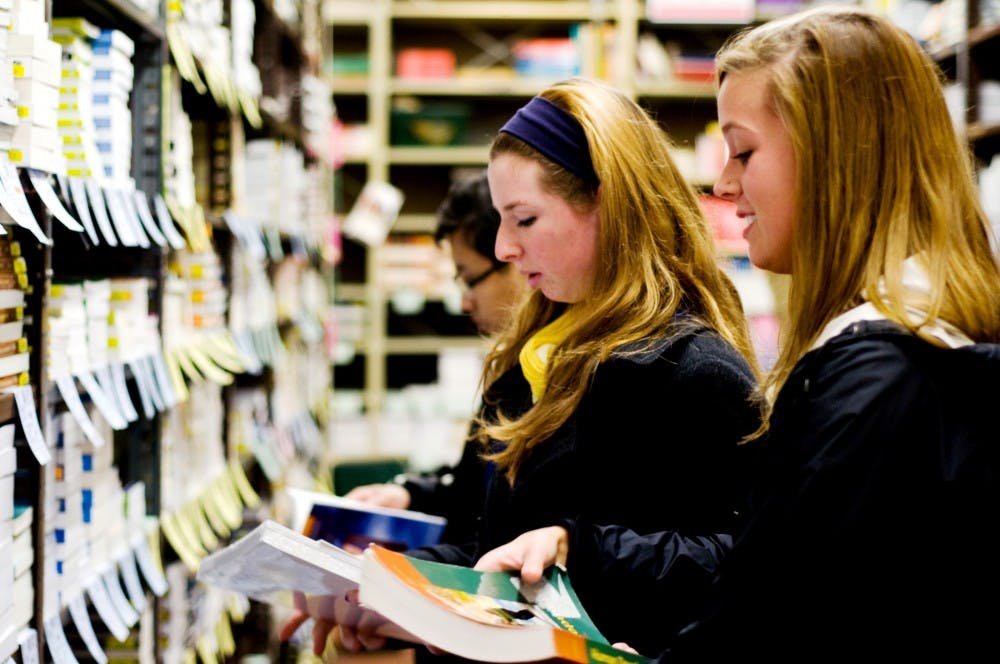A pilot study that tests the effectiveness of electronic books, or e-books, in the classroom potentially will give students the opportunity to digitize their college experience.
The Committee on Institutional Cooperation, or CIC, which is a cooperative agreement comprised mostly of Big Ten universities, is working with Courseload Inc. to develop a pilot study that allows CIC members to purchase a trial package of electronic textbook services.
The pilot study, which is slated to take place at MSU next fall, will help university officials decide whether or not to convert to a digital textbook model during the coming years, Associate Provost for Academic Services Linda Stanford said.
“(The university) wants to know how the experience was for students and instructors,” Stanford said.
“This study will help determine what we do regarding electronic texts in the future.”
The university currently is seeking faculty who would be interested in participating in the study, she said.
Up to 1,000 students can take part in the pilot study at no cost as long as they have access to and are able to read and print the electronic texts, Stanford said.
“The way that information is delivered keeps changing,” Stanford said. “We need to be a part of that change — we need to have that flexibility and diversity.”
For political science and pre-law sophomore Shalah Keith, the switch to digital textbooks could potentially relieve some financial stress, since she spends about $500 on printed editions of textbooks each semester, she said.
“I would definitely be interested in e-books,” Keith said.
“They would probably be cheaper, easier to carry around and better for the environment.”
Although e-books could be beneficial to students for various reasons including cost and accessibility, local bookstore sales might be affected if MSU decides to implement the technology.
Mike Wylie, assistant manager of Student Bookstore, 421 E. Grand River Ave., said although a recent decrease in textbook sales has little to do with the development of e-books and e-readers, such as the Amazon Kindle and Barnes & Noble’s Nook, he expects sales to be more dramatically affected by digital textbooks in the future.
“Bookstores, to some extent, have already started reducing prices to compete with electronic books, but the technology and pricing still isn’t good enough for students to choose them over hard copies,” Wylie said.
Support student media!
Please consider donating to The State News and help fund the future of journalism.
Discussion
Share and discuss “E-books study planned for fall” on social media.







